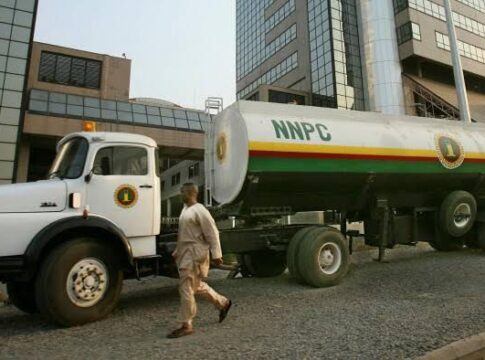Nigeria’s state-owned oil firm, the Nigerian National Petroleum Company Limited (NNPCL), imported over 213 million litres of petrol in the first 12 days of February, according to a confidential report on motor tanker vessel activity. This figure equates to 159,000 metric tons of Premium Motor Spirit (PMS) delivered through ports in Lagos and Calabar.
The revelation raises concerns about the impact of recent refinery upgrades. In December 2024, NNPCL announced the restart of the 125,000-barrel-per-day Warri refinery and a partial revival of the Port Harcourt refinery. These projects, costing nearly $897 million, were expected to curtail Nigeria’s reliance on fuel imports. However, imports remain substantial despite these efforts.
Energy expert Emmanuel Adebayo criticized the situation, saying, “It’s baffling that NNPCL continues importing when local refineries are supposedly operational. Nigerians deserve accountability on how public funds are spent.”
Nigeria Spends ₦407 Billion on Fuel Imports in 12 Days
NNPCL and other marketers spent ₦407.4 billion on importing 302.7 million litres of petrol and 104.8 million litres of diesel between February 1 and February 12. This follows a trend of massive importation. Between October 2024 and January 2025, Nigeria spent over ₦5.5 trillion on fuel imports, raising alarms about inefficiencies in domestic refining.
READ MORE: Price Wars Intensify: Marketers Abandon NNPCL for Dangote Refinery
“The costs are staggering, especially when our local refineries should meet demand,” said a senior government official, speaking anonymously. He called for an investigation into NNPCL’s actions, noting the company’s daily petrol import of 136.7 million litres far exceeds Nigeria’s consumption of 30 million litres.
ECOWAS Clean Fuel Standards Ignored
Nigeria’s importation of high-sulphur fuels also defies a January 2025 deadline set by the Economic Community of West African States (ECOWAS) to adopt cleaner fuel standards. ECOWAS mandates a sulphur cap of 50 parts per million, but Nigeria continues importing products exceeding this limit.
“This is an embarrassment to Nigeria’s leadership in ECOWAS,” Adebayo said. “Why are we still importing substandard fuels while exposing over 200 million Nigerians to health risks?”
Local Refining Still Falling Short
Despite the launch of the 650,000-barrel-per-day Dangote refinery and multiple rehabilitation projects, Nigeria remains dependent on imports. Critics argue this undermines the country’s fuel independence.
President Bola Tinubu and Minister of Petroleum Resources Heineken Lokpobiri face mounting pressure to scrutinize NNPCL’s operations. “NNPCL must account for how refinery funds are utilized and why we’re not seeing the results,” Adebayo concluded.
The continued reliance on imports, despite billions spent on domestic refineries, highlights Nigeria’s struggle to achieve energy security and cost efficiency.




